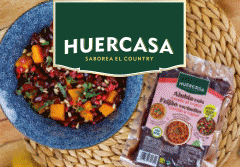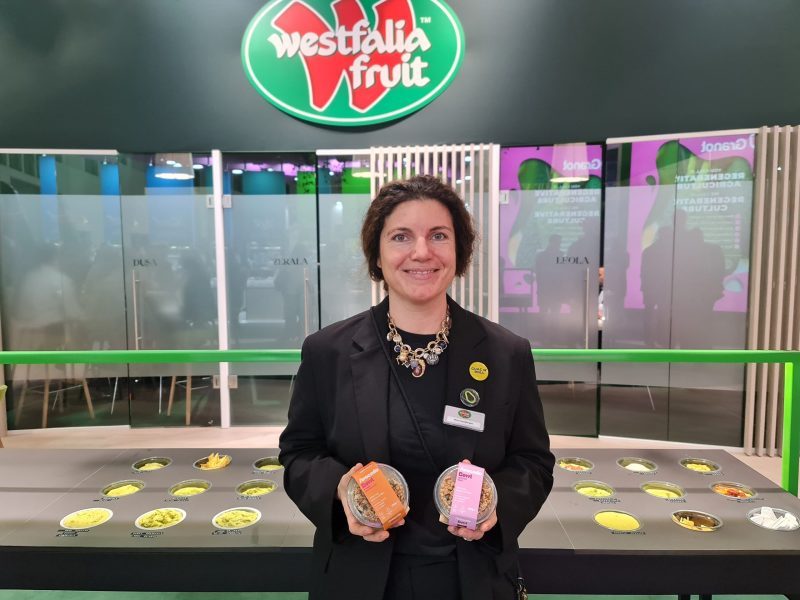Through research and collaboration with strategic partners, Westfalia Fruit has taken a step forward with innovations that transform avocado by-products into high-value resources.
With each of these developments, the company reaffirms its commitment to the circular economy, sustainable development, and waste reduction, consolidating itself as a key player in the circular economy of the agri-food industry.
Natural dye from the avocado seed
One of the most revolutionary developments is the extraction of a natural and sustainable dye from avocado seeds, in collaboration with SAGES London. This innovation enables the production of perseorangin, a rare and highly sought-after pigment.
The extraction process has been developed at Westfalia’s plant in the United Kingdom. The advantage of this dye is its chromatic versatility, offering eight natural shades, ranging from soft yellows to deep reddish-browns.
This advancement has captured the attention of the textile industry, particularly sustainable fashion brands looking for alternatives to synthetic dyes, whose production processes are often highly polluting. Its potential was demonstrated at the last London Fashion Week, where some designers showcased garments dyed with this natural pigment.
Additionally, the cosmetics industry has also shown growing interest in perseorangin, as it can be used in eyeshadows, blushes, and lipsticks free of harsh chemicals. With this innovation, Westfalia Fruit not only reduces avocado waste but also offers an eco-friendly and safe solution for consumers.
Sustainable packaging
Another major milestone in Westfalia’s sustainability commitment is the production of paper made with 25-30% avocado waste, a material that could revolutionize packaging and eco-friendly stationery production.
This development not only reduces the need for virgin wood fibers but also lowers the carbon footprint of the paper industry, which has historically been one of the most polluting sectors.
The applications of this sustainable paper are broad, serving as eco-friendly packaging for the food and cosmetics sectors, as well as for labels, recycled cardboard, and a sustainable alternative to traditional printing and writing paper.
This development is especially relevant at a time when the packaging industry is actively seeking viable alternatives to reduce the use of plastics and non-recyclable materials.
Cosmetics without microplastics
The multinational has also developed a sustainable alternative for traditional exfoliants. Instead of using microplastics—which have been banned in several countries due to their environmental impact—the company has found a natural source in avocado seeds for producing biodegradable exfoliating particles.
A circular economy model
Beyond these advancements, Westfalia Fruit continues to explore new applications to maximize avocado utilization across its various facilities in Europe and worldwide. Its integrated operations approach allows for the efficient collection and processing of avocado skins and seeds at multiple production centers, ensuring that every part of the avocado is put to beneficial use.
“This advancement represents a crucial step in our total crop utilization strategy,” company sources state, adding, “Transforming what was once considered a by-product into a valuable resource allows us to create sustainable solutions for various industries.”
Innovation: guacamole toppings
The trend towards customization and flavour diversification has led Westfalia, through Syros company, to enhance guacamole with toppings that add different flavours and expand its culinary uses.
Its versions include toppings such as fresh tomato, cream, and mango, designed to provide textural contrasts and exotic nuances to traditional guacamole.
Additionally, they have developed other variations such as guacamole with green peas and edamame, which adds extra plant-based proteins, or avocado hummus, which combines this fruit with chickpeas to offer a creamier and more versatile option.
RELATED NEWS: Westfalia Fruit acquires Belgian avocado products company Syros
But innovation does not stop at the ingredients. Ease of use and convenience have driven the creation of formats such as individual avocado pouches, ready to consume at any time of the day. These include surprising combinations, such as avocado with mango and passion fruit or with red fruits and basil, aimed at those looking for healthy and functional options.
Rise of smashed avocado
In this context of innovation, Westfalia’s smashed avocado has emerged as a key alternative for those who want to enjoy this superfood without the uncertainty of ripening. Made with 99% avocado and 1% sea salt and lime, this product preserves the freshness and natural flavor of avocado, with the added benefit of a longer shelf life thanks to HPP treatments.
Westfalia’s offering addresses a common issue among consumers: the inconsistency in the quality of fresh avocados. With its smashed format, they guarantee an optimal texture and a ready-to-use product, ideal for spreading on toast or preparing guacamole instantly. Additionally, its popularity has grown exponentially, driven by its presence in supermarkets in the Netherlands and Belgium, as well as its promotion on social media, where influencers and foodies have highlighted its benefits.




















